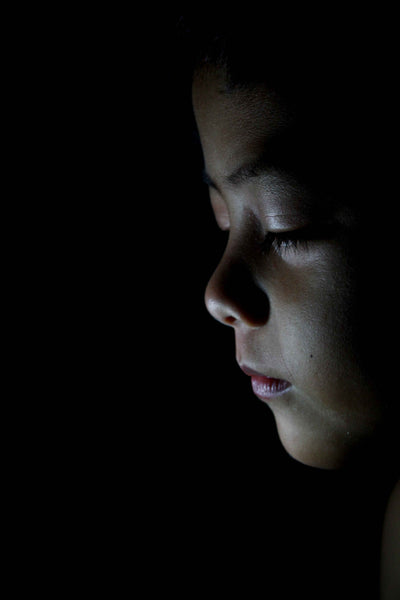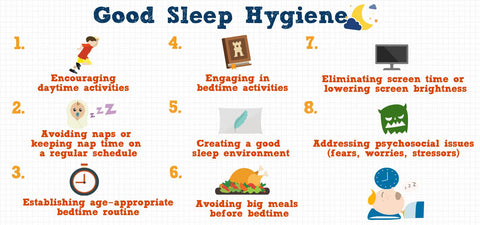Children and Melatonin Supplements : A Growing Concern
Posted by Siriya Mitsattha on June 26, 2016 . 0 Comments
Almost 35% of Canadian children suffer from some type of sleep related issue. Common sleep conditions are pediatric insomnia, delayed sleep onset, frequent night awakenings and difficulty falling asleep or returning to sleep.

Use of electronic devices before bed time is known to cause sleep disruption
In order to better understand how parents address these issues, The Canadian Paediatric Society (CPS) conducted a survey in 2015 titled The Usage of Sleep-Promoting Medication in Children. They asked parents and caregivers about their use of both over-the-counter and prescription medication in aiding their child with sleep.
Out of 346 survey responses:
- 21.4% of parents admitted using over-the-counter melatonin supplements
- 4.6% revealed using prescribed Benzodiazepines to treat insomnia
- 53% of parents and caregivers agreed that drugs should only be used if other treatments have failed
- 27.4% supported the combination (medication and behavioural) treatment, and the rest approved sleep-promoting medications
Parents and caregivers’ main concerns for their children are short and long-term side effects and development of tolerance or habituation. With limited research on melatonin supplement use in children, the CPS advised parents and caregivers to focus more on behavioural intervention and sleep management solutions.
What is melatonin?
So what is melatonin anyway? And why is it important?
Melatonin is a hormone produced naturally by the pineal gland in the brain. Production of melatonin peaks during the night time when it is dark. It is also known as the sleep hormone as its release corresponds to the absence of light in the evening hours.
Melatonin is important because it helps maintain the circadian rhythm. Melatonin release by the pineal gland, is a signal to the rest of the body that it is night time.
Melatonin has other health benefits as well, it is a powerful antioxidant. Because of its antioxidant properties, melatonin assists the immune system in combating infection and it also slows down the neurodegenerative diseases, for example, Alzheimer’s disease, Parkinson, and Ischemic stroke.
It should be noted that melatonin is not a sleep drug – it’s release generally corresponds with darkness, and as such a timing mechanism for the onset of sleep. In Canada, melatonin is considered a natural health product. Synthesised melatonin can be purchased without any prescription.
Melatonin & Children
There are various reasons why parents give their children melatonin supplements:
- Doctors' recommendation
- Concern about the health effects of sleep deprivation
- Failure of other treatments
Although, numbers of parents are satisfied with the result of melatonin supplements, some have argued pills did not work on their children.
Use of melatonin supplements can be complicated considering its dosage & effect and timing. Consuming a small dose before bedtime can result in more of an effect than having a large dose at bedtime. Hence, it is best to consult with doctors and get professional opinions before giving melatonin supplements to children.
What do the experts say?
The experts’ thoughts on the use of melatonin supplements are not conclusive. Mayo Clinic states that melatonin supplements are not recommended as they may potentially have harmful side effects. They also mention the risk of melatonin use in affecting development of testes or ovaries.
Apart from that, Canadian Paediatric Society indicates that melatonin supplements are effective in ASD and ADHD children cases; however, there is no research that supports the long-term effectiveness and safety. The National Health Service in England only supports melatonin supplements if other treatments have failed.
Because of the lack of research of the impacts of melatonin use among children, good sleep hygiene practice is the key. There are few official guidelines released by medical bodies in Canada, Strategies for Getting a Good Night's Sleep by Canadian Pharmacist’s Letter and Melatonin for the Management of Sleep Disorders in Children and Adolescents by Canadian Paediatric Society.
The following infographic provides some tips to encourage better sleep hygiene in children.

Rather than giving children melatonin pills, parents can practice good sleep hygiene with their children. Parents should create a comfortable sleep environment and ensure the room is at the appropriate temperature.
As explained on the How Do Blue Block Glasses Work page, exposure to evening lighting is known to delay the onset of sleep. Parents should eliminate digital screen time prior to bedtime for small children or consider installing a blue light filter for older children completing homework.
Lastly, parents can also try to engage in calming bedtime activities with children, for instance, soothing music or bedtime stories.
Source:Melatonin for Insomnia in Kids

Post Comment.